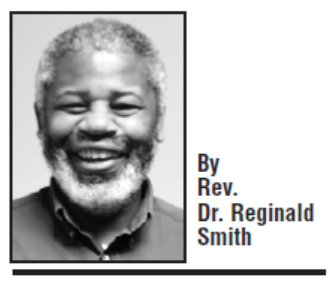All Disagreements Are Not Bad
36 Some time later Paul said to Barnabas, "Let us go back and visit the believers in all the towns where we preached the word of the Lord and see how they are doing." 37 Barnabas wanted to take John, also called Mark, with them, 38 but Paul did not think it wise to take him, because he had deserted them in Pamphylia and had not continued with them in the work. 39 They had such a sharp disagreement that they parted company. Barnabas took Mark and sailed for Cyprus, 40 but Paul chose Silas and left, commended by the believers to the grace of the Lord. 41 He went through Syria and Cilicia, strengthening the churches (Acts 15:36-41)
For the first time, Barnabas wanted his own disciple. John Mark had been leaning into his apprenticeship with the man named encouragement. Mark was a good writer and an excellent listener. He learned fast. Mark looked up to Barnabas. Barnabas found someone he trusted. However, Paul believed Mark failed leadership 101. Be faithful was the first lesson of being a disciple. Being faithful was basic in Paul's book.
Mark left Paul in Pamphylia without an excuse or explanation. Paul looked for Mark and he was nowhere to found. Deeply hurt, Paul concluded John Mark got an F for unfaithfulness to him. In addition, Mark let Paul down in doing the work of ministry. There was no second chance for Paul with Mark. Mark's record with Paul was the end of the conversation in his mind. Nothing more to say.
Perhaps Mark and Silas were in close proximity of the sparing men. They heard their voices raised as they fought about them. What were the young disciples thinking seeing their rabbis fighting in broad daylight? What were they thinking as the once dynamic duo was falling apart because of them? Both young men might wondered if they could help end the feud.
They remained quiet and somber in spirit as they watched Paul and Barnabas rail against each other. One of the best evangelist team on the planet called it quit. For Mark and Silas, a line drawn between them. They were rivals. The sharp disagreement was not what they wanted at all. Maybe tears dripped down their faces seeing the men shouting at each other.
Luke does not write the Holy Spirit intervened and they apologized to each other. He does not make up stories Jesus appeared to them with an olive branch. Luke refused to sugarcoat conflict in the early church. He does not deny the friction and egos that rise up among friends and colleagues.
Disagreements are the very things the Lord uses to bring unexpected clarity. Moses' conflict with Pharaoh resulted in the exodus of Hebrew slaves into freedom. Disagreements between king and three Hebrew boys gave birth to a miracle in the lion's den. Jesus' fights with kings, religious experts and the Roman Empire gave rise to the early church. Conflicts are the natural means of human sin that God recycles for his glory. The conditions of conflict becomes the raw materials of kingdom expansion.
Perhaps Barnabas grabbed Mark by the arm and dragged him away. They stomped off to the harbor to sail off to Cyprus — no goodbyes, no hugs, only silent anger that does not last for long. Paul might have watched as his former friend, the man who looked for him in Tarsus, fade into the night sky. Paul possibly turned back to Silas and sighed. Silas won his trust. The lad passed the difficult tests of study, loyalty and humility.
The brothers gathered to possibly pray over Paul and Silas. The work of building up the young fragile church was important work indeed. Both men boarded a ship to Syria and Cilicia with supplies and great encouragement from the church at Antioch.
Two evangelism teams out of a disagreement. Barnabas and John Mark took the gospel throughout the Roman cities and islands. They preached the good news of Jesus wherever they went. Paul and Silas continued the missionary journeys with passion and fortitude.
Only the Lord redeems out conflicts and allows good to result from it. Only the Lord takes our disputes, allows time to heal our wounds and expands his kingdom through us. The expansion did not occur from a miracle or wonder.
It came from a fight between two friends who lost their ways over finding their companion.
On the island of Cyprus, the church grew under the leadership of Barnabas and Mark. People were saved, the word was taught and leaders were raised up. In the lands of Syria and Cilicia, churches baptized new believers, elders were taught and the young church strengthened by Paul and Silas' leadership. The Holy Spirit was present with both teams. The Spirit at work in their preaching and teaching.
The Spirit grew the church with both teams. In the other words, the Spirit is not looking for the right conditions based on our conflicts and disagreements with fellow believers. The Spirit takes light, darkness, to be useful to the Lord's purposes and us. Paul, Barnabas, Silas, and Mark are clearly Exhibit A of this truth.
What about us? The Lord teaches best when things are not going well with us. Jesus has our undivided attention during times of tumult and tension. Broken relationships drive us to either fight or flight mode. Praying for the optimum conditions might not come your way. Yet, the Lord continues to work on your ability to forgive someone while he works on the other person. Could the Lord be nudging you to work out your own salvation with fear and trembling?
Disagreements are only triggers to moving you and me to doing His will. All relationships are fragile. Let the Lord work on you as his work on your enemy.
It is all in His time. That is grace at work.
Tagged in:
